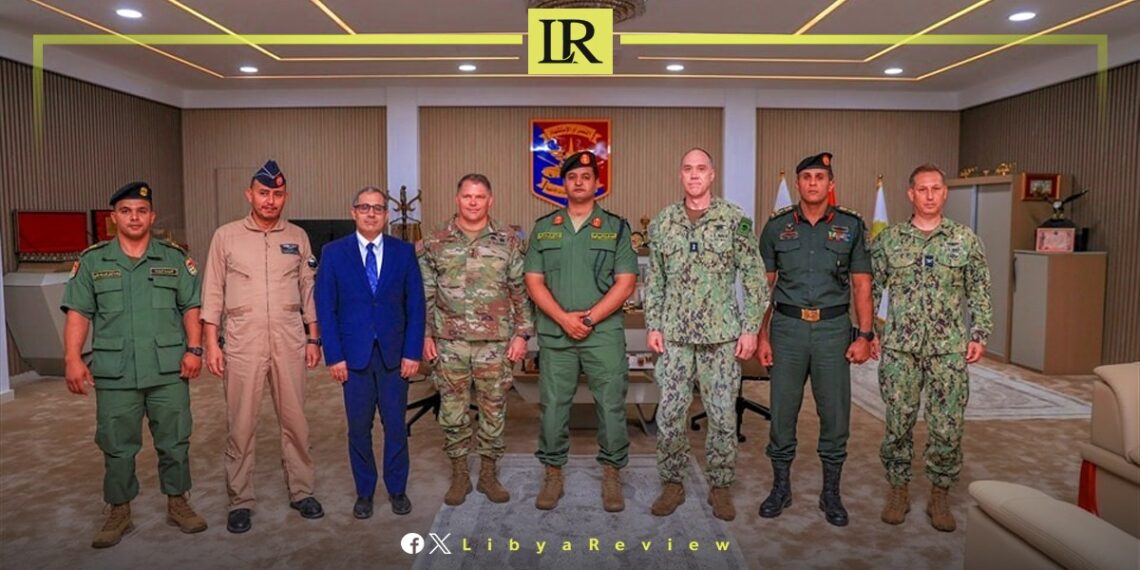On Saturday, Lieutenant General Khaled Haftar, Chief of Staff of the Security Units of the Libyan National Unity (LNA), welcomed U.S. Africa Command (AFRICOM) Deputy Commander, Lieutenant General John Brennan, in Benghazi. The meeting was also attended by Jeremy Berndt, the U.S. Chargé d’Affaires to Libya.
During the meeting, Lieutenant General Brennan reaffirmed the United States’ commitment to assisting Libya in protecting its sovereignty, unifying its military institutions, securing its borders, and combating terrorist threats.
The parties agreed to continue expanding training programs, education, and engagement with Libyan military officers from the southern, eastern, and western regions of the country.
Last Thursday, the U.S. military delegation also met with Major General Saddam Haftar, Chief of Staff of the Libyan Ground Forces, to discuss enhancing joint cooperation in counterterrorism and implementing several joint training programs. These initiatives aim to improve the capabilities of the Libyan Army in border security and reduce irregular migration.
The visit by AFRICOM’s Deputy Commander to Benghazi underscores the growing strategic partnership between the United States and Libya in military cooperation and security. This partnership is crucial given Libya’s strategic importance in North Africa and the Mediterranean region, particularly in the context of regional stability, counterterrorism efforts, and migration control.
Libya has faced significant challenges since the 2011 uprising that ousted Muammar Gaddafi. The country has struggled with political fragmentation, the presence of various armed groups, and external interventions, which have compounded its security issues. In this context, the unification of Libya’s military institutions is seen as a critical step toward stabilizing the country and ensuring effective governance and territorial integrity.
The U.S. has consistently expressed support for Libya’s sovereignty and its efforts to build a unified, professional military. The meetings with Lieutenant General Khaled Haftar and Major General Saddam Haftar are part of broader efforts to bolster Libyan military capacity through training, joint exercises, and strategic planning.
Counterterrorism remains a key focus of U.S.-Libya military cooperation. Libya’s geographic location makes it a pivotal point for controlling the spread of extremist groups in North Africa and the Sahel region. By enhancing the Libyan military’s capabilities, the U.S. aims to mitigate these threats and contribute to regional stability.
Border security and the reduction of irregular migration are other critical areas of focus. Libya’s extensive coastline and porous borders have made it a major transit point for migrants attempting to reach Europe.


